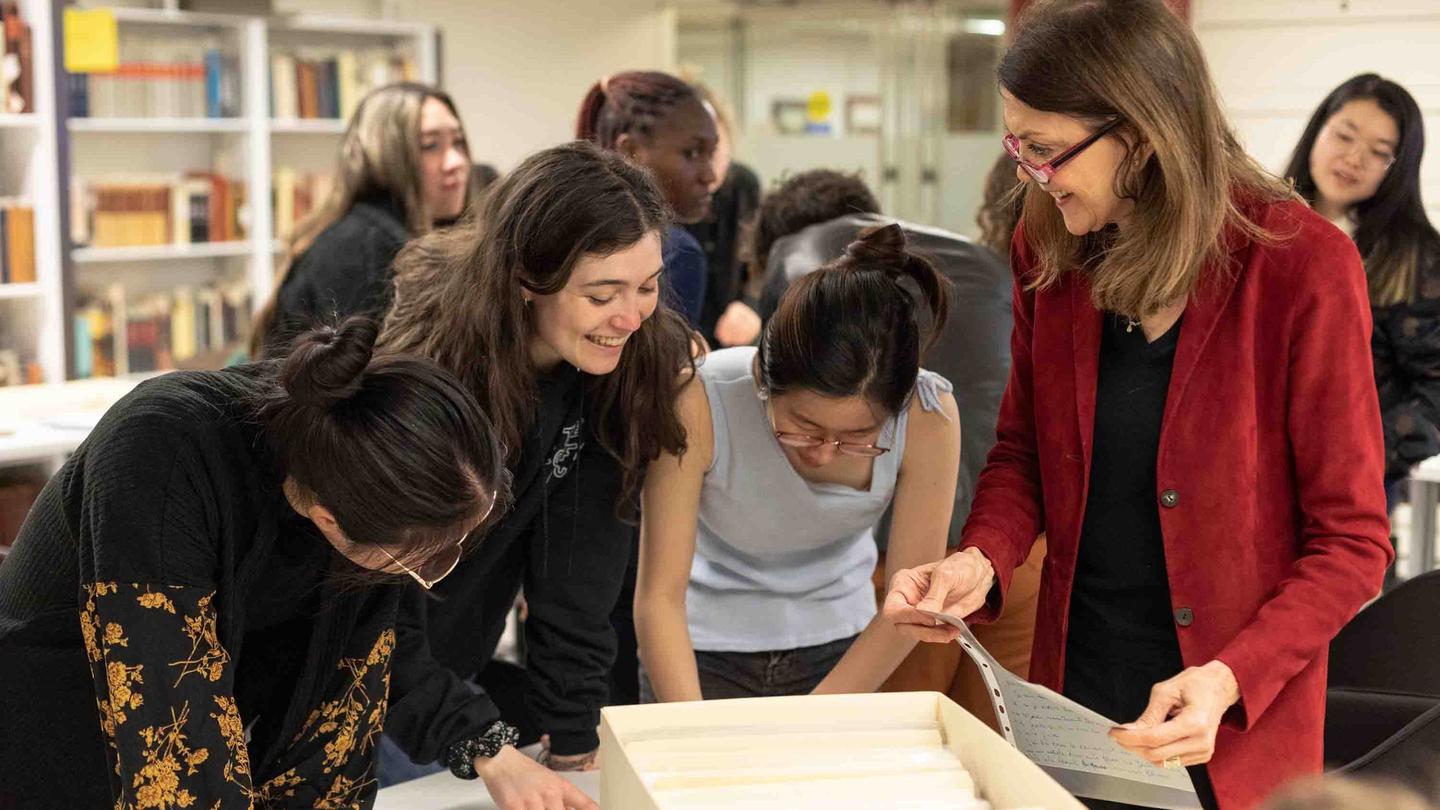Poet and French Resistance leader René Char is the focus of a course that builds on his archives here

Photograph by Ryan Halbe, Office of Communications
This spring, students in the course “Poetry and War: Translating the Untranslatable” explored Char’s poetry in its historical context and its ongoing “afterlife” in translations around the globe. They explored the Char Papers, held in Princeton University Library’s (PUL) Special Collections. On a spring break trip to France, they met Char’s widow and editor, Marie-Claude Char, who guided them on a literary and historical journey exploring her husband as poet and Resistance leader. Back on campus, their work culminated in a dramatic public reading of the “notebook” in multiple languages, using the students’ own individual translations.
“Char’s poetry is powerful,” said Sandra Bermann, the Cotsen Professor in the Humanities and professor of comparative literature. “It engages deeply with human suffering, but also with the solace offered by dialogue, attentiveness to the people and things around us, and by poetry itself. Though its language is not always easy, changing registers throughout from the practical, to the lyrical, to the philosophical, his texts have been translated into more than 30 languages and have influenced writers and artists around the globe.”
Bermann developed the course to dovetail with a book she is now writing on Char’s war-time poetry. It also connects closely with an international translation project she is leading, the Char Translation Project. Bermann is collaborating on this with Jernej Habjan and Fabrice Langrognet, two former Fung Global Fellows — a PIIRS program that invites five international scholars to Princeton for one academic year to research, write and collaborate around a common topic; Bermann served as faculty director in 2020-21. The course and the Char Translation Project are supported by the Humanities Council Magic Project, which encourages innovation in the humanities and works with faculty to develop experiential learning opportunities for students.
